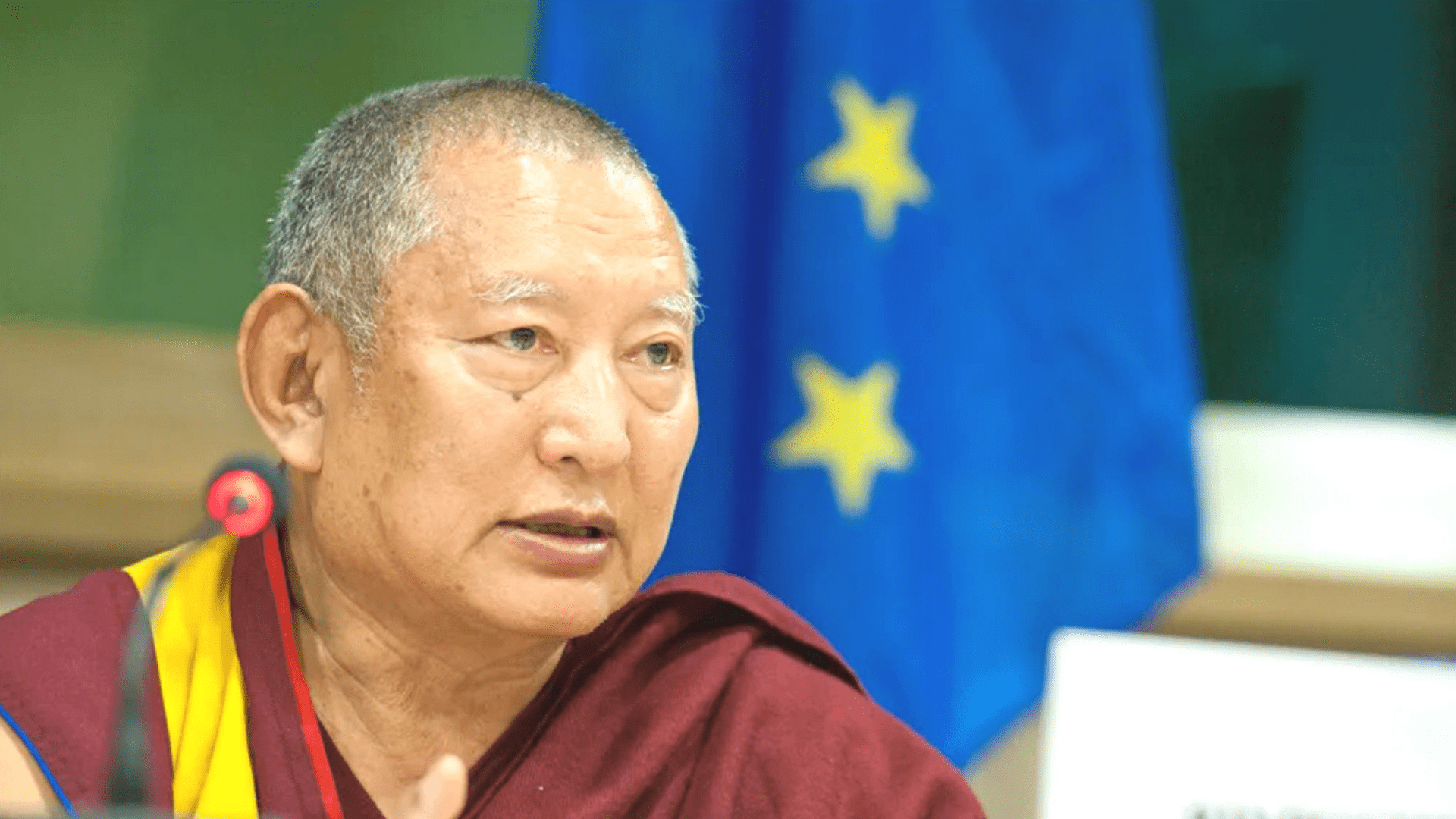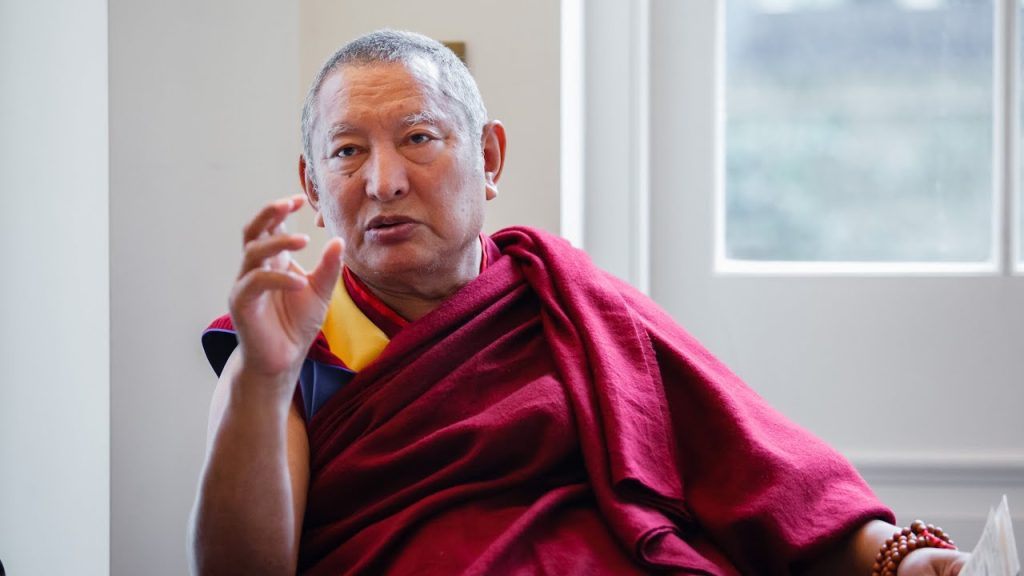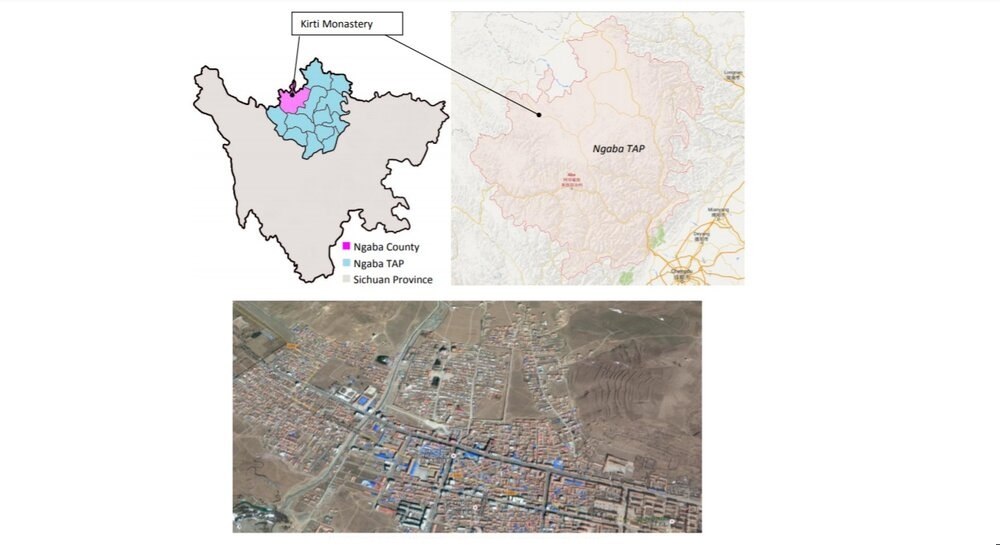
Birthday Celebrations in Honor of Kirti Rinpoche Banned
Social media and public movement controlled on 80th birthday of a revered Rinpoche in Ngaba
Free Tibet’s research partner Tibet Watch has learned that Chinese authorities banned all religious activities, social events and private gatherings in Ngaba (Ch: Aba) during the 80th birthday of His Eminence the 11th Kirti Rinpoche Lobsang Tenzin Jigme Yeshe Gyamtso Rinpoche of Kirti Monastery.
On 8 August 2021, His Eminence Kirti Rinpoche turned 80 years old. His birthday, usually observed by thousands of his followers both inside and outside Tibet, was banned by the local Chinese authorities in Ngaba. Special restrictions were imposed on social media and public movement. All the religious activities at Kirti Monastery and its associated monasteries in Ngaba and the neighbouring area of Zoegé were banned. The restrictions are equally imposed on the villages in the area.
Sources spoken to by Tibet Watch said that officials ordered a complete ban on religious ceremonies, hanging prayer flags, making smoke offerings and even private picnics and birthday parties.
Another source also explained that the local Chinese police have fully surrounded Kirti Monastery and the nearby villages. Police and armed personnel deployed to the monasteries and villages are monitoring the movement and activities of local Tibetans. “Look, they have been patrolling everywhere for the whole day since morning. Ashangtsang (refers to Chinese) are doing everything”, the source told Tibet Watch from the scene.
In conjunction with the physical presence of police monitoring public movement and activities, sources confided that the cyber-surveillance authorities are investigating and searching individual phones and WeChat messages to restrict any information from reaching outside Tibet. Social media and online chat groups are routinely monitored for any topic deemed politically sensitive by the Chinese government.
Kirti Rinpoche

11th Kirti Rinpoche
Kirti Rinpoche was born in 1942, in Thewo Takmoe Gang in the eastern Tibetan province of Amdo. He is recognised as the reincarnation of the tenth Kirti Rinpoche, who was recognised as a keytrun, a reincarnation of Rongchen Gendun Gyaltsen, a close disciple of the Je Tsongkhapa Lobsang Drakpa (1357 -1419), one of the most important figures in the history and philosophy of Tibetan Buddhism. In 1946, His Eminence was enthroned at Taktsang Lhamo Kirti Monastery and in 1948 received his vows of a novice monk and Getsul ordination from Yongzin Gonpo Ludup Tulku. In 1954, Kirti Rinpoche started learning five major treatises of Buddhist texts under the tutelage of a panel of seven leading Geshes who were appointed as his Tsenshap (debating partner). He also received monastic education from other learned scholars in the lineage of Tibetan Buddhism including Gonpo Ludup Tulku Thardo Gyurmey Gyatso and Je Kunchok Sherab.
As per the wish of the Dalai Lama, in 1957, he came to Lhasa and received teachings at the esteemed Drepung Monastery after which an honorary title was conferred on him. Ever since his escape to exile in 1959 with His Holiness the fourteenth Dalai Lama, he pursued his studies and worked tirelessly in various capacities both for the Central Tibetan Administration and in the revival of the Gelug school of Tibetan Buddhism. He holds a significant position and spiritual reverence as a root guru to Tibetans both inside and outside Tibet, especially for Tibetans in Ngaba.

The location of Kirti Monastery
Ngaba’s Kirti monastery was founded in 1472 and there are 30-40 affiliated monasteries. Dedicated efforts were consistently made for the revival of Tibetan Buddhism in Ngaba despite the upheavals of the People’s Liberation Army’s military invasion and Cultural Revolution. It became the epicentre of Tibetan self-immolation protest in 2009 and the area has since been under heightened crackdown and surveillance.
Information supplied by Tibet Watch

